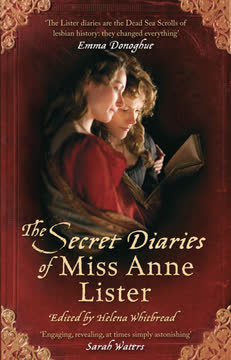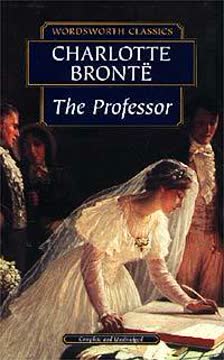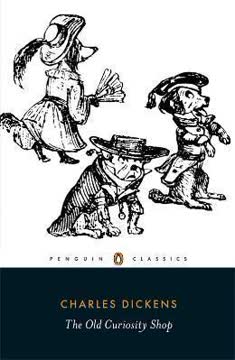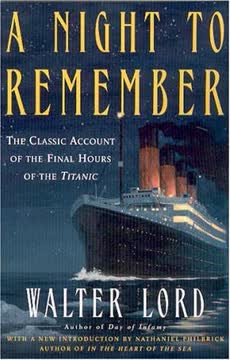Key Takeaways
1. The Secret Keeper: A Life in Code
The idea of using an esoteric code appears to have had its roots in Anne’s burgeoning knowledge of the Greek language: she mingles Greek letters with other symbols of her own devising.
A private world. Anne Lister meticulously documented her life in journals totaling four million words, a significant portion written in a complex "crypthand" of her own invention. This elaborate code, blending Greek letters with unique symbols, allowed her unparalleled freedom to record intimate details of her life, believing its contents would remain forever hidden. The journals remained concealed at Shibden Hall for nearly six decades after her death.
Unveiling the truth. In 1887, John Lister, the last family occupant of Shibden Hall, attempted to publish "plainhand" extracts, unaware of the coded passages' true nature. When he and Arthur Burrell finally deciphered the code, they were so shocked by its revelations of Anne's "homosexual practices" that Burrell suggested burning the journals. John Lister, however, preserved them, recognizing their historical importance despite his dismay.
A unique historical document. The journals eventually transitioned to public property, their secrets guarded by a handful of officials and scholars for decades due to societal taboos. It wasn't until the liberalizing climate of the 1960s and 70s that the full scope of Anne's life, as detailed in her crypthand, could finally be openly explored, revealing a unique contribution to the history of women's sexuality.
2. A Woman Unbound: Defying 19th-Century Norms
I love and only love the fairer sex and thus, beloved by them in turn, my heart revolts from any other love than theirs.
Unconventional spirit. Anne Lister was a woman who consciously defied the rigid social expectations of early 19th-century England. Her "masculine appearance and behaviour" earned her the nickname "Gentleman Jack" among the local populace, a testament to her striking individuality in a society that confined women to domestic roles. She managed her estate, developed coal mines, and engaged in physical labor typically reserved for men.
A trailblazer for women. Beyond her personal presentation, Anne was a pioneer in her determination to live openly as a lesbian, seeking a life partner of her choice. Her academic contributions led to her becoming the first woman elected to the Halifax Literary and Philosophical Society committee, showcasing her intellectual prowess in a male-dominated sphere. She actively pursued self-education, aiming to surpass the academic standards of most men.
Living on her own terms. Anne's life was a bold assertion of self, driven by a fierce independence and a belief in her unique nature. She rejected conventional marriage, stating she "could not like men" and "ought not to like women," yet embraced her inclination. Her courage in fashioning a life according to her own desires, despite societal disapproval, marks her as an extraordinary figure.
3. Mariana: The Heart's Enduring Agony
What is M—’s match but legal prostitution? And, alas, what is her connection with me? Has she more passion than refinement? More plausibility than virtue?
A shattered idyll. Anne's most intense and enduring love was for Mariana Belcombe (M—), a relationship that began passionately in 1812. Their "idyllically happy sexual affair" was abruptly shattered when Mariana, prioritizing financial security and social convention, married Charles Lawton (C—), a wealthy widower. This act of "betrayal" left Anne "bitterly hurt."
Clandestine continuation. Despite Mariana's marriage, the two women maintained a secret relationship and extensive correspondence, often using Anne's crypthand to disguise their intimacy. Anne harbored a long-term hope that C— would die, freeing Mariana to live with her at Shibden Hall. However, C—'s jealousy and Mariana's "worldly-mindedness" constantly complicated their clandestine meetings.
The bitter truth. Anne's journal entries reveal her deep emotional turmoil and growing disillusionment with Mariana's character, particularly after contracting a venereal disease from her, which Mariana had apparently acquired from her husband's extramarital affairs. Anne grappled with Mariana's "selfishness & worldly-mindedness," questioning her sincerity and the true nature of their bond, ultimately concluding that Mariana lacked the "magnanimity of truth" she desired.
4. Isabella: A Friendship's Fading Flame
She does not suit me at all.
A loyal, but flawed, companion. Isabella Norcliffe (Tib) was another significant woman in Anne's life, a friend of even longer standing than Mariana. Isabella, who never married, had once hoped to be Anne's life-partner and remained deeply affectionate and constant in her devotion. However, Anne's commitment to Isabella waned over time due to several factors.
Growing disillusionment. Anne became increasingly critical of Isabella's habits, particularly her heavy drinking, which Anne noted as "very near a bottle a day of our hot sherry." She also found Isabella's temperament unpredictable and her manners lacking in refinement, observing that "she does not suit my uncle & aunt" and "she is going the way to lose herself a little."
A practical parting. Despite Isabella's enduring love and desire to live with Anne, Anne ultimately concluded that Isabella was not a suitable long-term companion. She gently but firmly conveyed that their interests were "separated forever," though she retained a "tenderness" for her. Anne's growing sophistication and desire for a partner who could enhance her social standing further solidified this decision.
5. The Social Labyrinth: Navigating Halifax Society
I am sure Kallista has no dislike to me & her not speaking last Sunday was politic bashfulness. She seems determined to let all the notice come first from me. Sensible girl. She knows how to play her part.
A snobbish sensibility. Anne Lister, as a member of the only landowning family in Halifax, held a distinct social advantage and was acutely aware of her high status. She often viewed the town's burgeoning middle-class families, even wealthy entrepreneurs, as socially inferior, confiding "trenchant remarks" about her dissatisfaction with having to seek their company. This snobbery often made her enemies and contributed to her reputation as a "loner."
The subject of gossip. Anne's unconventional appearance and behavior, particularly her "pronounced masculinity," made her a constant subject of local speculation and gossip. Her intense friendships with young women were viewed with "scandalised amusement," and she was often "baited" on the subject of her "favourites." She was aware of the town's "quiz" and "haranguing about my caprice."
Strategic social maneuvering. Despite her disdain, Anne was sensitive to social niceties and public opinion. She strategically managed her interactions, as seen in her pursuit of Miss Browne, where she analyzed Miss Browne's reactions and her own perceived "dignity." She sometimes feigned indifference or used her intellect to deflect unwanted attention, though she often felt "mortified" by the town's scrutiny.
6. The Relentless Pursuit of Knowledge
I would rather be a philosopher than a polyglot, & mean to turn my attention, eventually & principally, to natural philosophy.
A thirst for learning. Denied a university education as a woman, Anne Lister embarked on an ambitious program of self-education. She diligently studied classics (Greek, Latin), mathematics (Euclid, algebra), history, and literature, often rising early to dedicate hours to her studies. Her intellectual heroes included Gibbon and Rousseau, whose "Confessions" inspired her own explicit journal writing.
Academic ambition. Anne's pursuit of knowledge was not merely for personal enrichment; she harbored ambitions to write and achieve a "name in the world." She meticulously organized her studies, even devising a "universal index of similes" for future writing. Her dedication was so profound that she often felt "dissatisfied with myself for not having lately got up in a morning so early as I thought."
Intellectual superiority. Anne often found herself intellectually isolated in Halifax, disparaging the "unsophisticated female company" available. She sought out intellectual challenges, engaging with learned individuals like Mr. Knight and Miss Pickford, and relished opportunities to demonstrate her superior intellect, even if it meant being perceived as a "bluestocking" or "pedantic."
7. The Quest for Autonomy: Money and Independence
I wished I could persuade my friends to let me try & do something for myself.
Financial dependence. Despite her family's social standing, Anne Lister faced significant financial constraints, particularly in her early adult years at Shibden Hall. She was largely dependent on her uncle and aunt, with only occasional, unreliable help from her often "insolvent" father. This dependence fueled her desire for self-sufficiency.
Schemes for independence. Anne explored various unconventional avenues to earn money, even contemplating a "wildcat scheme" of "rambling, begging, and eventually gambling" or working on the stage, though these never materialized. Her primary focus shifted to managing the Shibden estate, developing coal mines, and improving her financial acumen, recognizing that "liberty & wavering made us both wretched."
Securing her future. As her uncle and aunt aged, Anne increasingly took charge of the estate's management, aiming to secure a substantial income. She meticulously tracked her expenses and income, striving for a "prosperous way." Her ultimate goal was to achieve enough financial independence to live as she pleased, ideally with a chosen female companion, without being beholden to anyone.
8. The Body's Betrayal: Illness and Vulnerability
It has occurred to me – can C— have given her a venereal disease?
A shocking diagnosis. Anne's journal reveals a deeply personal and distressing health crisis: contracting a venereal disease. This occurred after a sexual encounter with Mariana, who, Anne suspected, had been infected by her husband, C—, known for his "dissipated character" and "late imprudence." The realization that she had been infected by her lover, through her lover's husband, was a profound shock.
Secret struggle and self-treatment. Anne meticulously documented her symptoms and attempts at self-treatment, consulting doctors like Steph Belcombe (Mariana's brother) and Mr. Simmons, while carefully concealing the true nature of her illness from her family. She endured daily regimens of injections, washes, pills, and powders, recording the "heat & itching" and "discharge" with clinical detail.
Psychological toll. The venereal disease, and the circumstances of its transmission, had a significant psychological impact on Anne. It intensified her feelings of betrayal by Mariana and contributed to her "low spirits" and "unhappiness." The fear of infecting others, particularly Isabella, also weighed heavily on her conscience, adding another layer of complexity to her already intricate emotional life.
9. Travel as Escape and Enlightenment
The art of travelling requires an apprenticeship. Surely I shall improve in time.
Broadening horizons. Anne Lister was an avid traveler, undertaking journeys across England, Wales, and to the Continent. These excursions served multiple purposes: escaping the "provincialism of Halifax," seeking medical advice, pursuing intellectual interests, and simply satisfying her "romantic element" to "explore the wilder parts of the world."
Observations and reflections. Her journals are rich with detailed observations of the places she visited, from the architecture of Paris to the landscapes of the Lake District and the social customs of various towns. She meticulously noted expenses, accommodations, and the character of the people she encountered, constantly comparing and reflecting on her experiences.
Personal growth through travel. Travel often brought Anne face-to-face with her own vulnerabilities and prejudices. She reflected on her "shabbily dressed" aunt, her "clown of a servant," and her own "vulgar" father, acknowledging that "we do not cut a figure in travelling equal to our expenses." Yet, she saw these experiences as opportunities to "learn & improve in travelling matters," hoping to gain "future advantage" and a more "cosmopolitan" outlook.
10. The Weight of Family and Social Expectations
Surely this is the last journey I shall ever take with my father & Marian both together.
A source of exasperation. Anne's relationship with her father, Captain Jeremy Lister, was often a source of profound irritation and embarrassment. His constant financial insolvency, "bad management" of his estate, and "desperately vulgar" speech and manners mortified Anne, especially when traveling or in public. She actively sought to distance herself from his social awkwardness.
Managing family affairs. Despite her exasperation, Anne dutifully took on the burden of sorting out her father's tangled financial affairs, devising plans for him to sell property and live cheaply abroad with her sister Marian. She felt a sense of responsibility, even as she wished to be "out of the scrape" and free from their influence.
The pressure to conform. Anne's family, particularly her uncle and aunt, held traditional views, though they were generally tolerant of her unconventional nature. They expected her to be at home, manage the estate, and eventually marry. Anne's internal conflict between her desire for personal freedom and the expectations of her family and society is a recurring theme, often leading to feelings of being "tied" or "under restraint."
11. The Journal as a Mirror: Self-Reflection and Solace
I owe a good deal to this journal. By unburdening my mind on paper I feel, as it were, in some degree to get rid of it; it seems made over to a friend that hears it patiently, keeps it faithfully, and by never forgetting anything, is always ready to compare the past & present & thus to cheer & edify the future.
A private confidante. Anne Lister's journal was far more than a mere record of events; it was her most trusted confidante, a place where she could pour out her deepest thoughts, feelings, and struggles without fear of judgment. She explicitly stated, "I tell myself to myself & throw the burden on the book & feel relieved," highlighting its therapeutic role in her life.
Unvarnished honesty. Within its pages, Anne was brutally honest, dissecting her own character, her "oddities," her snobbery, and her "inconsistencies." She analyzed her relationships, her physical ailments, and her emotional turmoil with a rare degree of introspection, using the act of writing to process complex experiences and reconcile conflicting feelings.
A tool for self-improvement. The journal served as a constant companion, a "private memorial" that allowed her to "live my life over again," learning from past mistakes and bracing herself for future challenges. It was her "spirit's oil," preventing her mind from "wear[ing] itself out" and providing a sense of order and purpose amidst the chaos of her life and the world around her.
Last updated:
Review Summary
The Secret Diaries of Miss Anne Lister offers a fascinating glimpse into early 19th-century lesbian life through Anne's detailed accounts. Readers appreciate the historical significance and Anne's confidence, though some find her snobbish and unlikable. The diaries provide insights into daily life, relationships, and societal attitudes of the time. While some readers find the content tedious, others are captivated by Anne's unique perspective and experiences. The book is highly recommended for those interested in LGBTQ+ history and women's lives in the 1800s.
Similar Books
Download PDF
Download EPUB
.epub digital book format is ideal for reading ebooks on phones, tablets, and e-readers.









